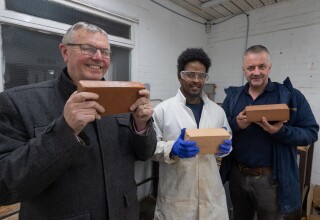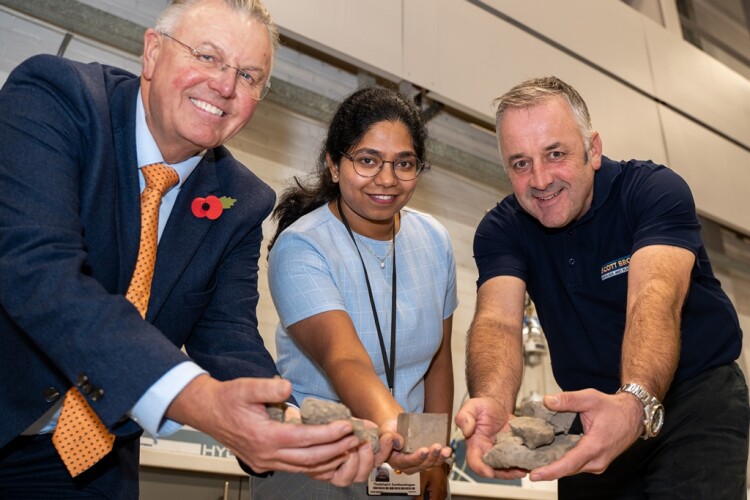Scott Bros, a Stockton-based haulage and waste contractor, has been working for years on ways to reuse the fine-grained clay by-product produced by its wash plants that convert construction and excavation waste into sand and aggregate. Currently the material is virtually worthless and is used as pond lining clay or inert engineering fill.
Two years ago in-house scientist Feysal Shifa, a Teesside University graduate, came up with three prototype bricks from the material. [See previous report here.] He has since produced more prototype bricks to perfect the process of binding the clay, also known as filter cake.
The company has now tapped into the university’s research capabilities to explore scaling up the brick binding technology in order to lower production costs and make the process is commercially viable.
The project is supported by Tees Valley Launchpad, a £6m research & development fund established by Innovate UK, part of UK Research & Innovation.

Bob Borthwick, a director of Scott Bros, said: “We have spent several years perfecting the process of binding together what is effectively a waste material to create a brick that could have a major impact on the construction industry.
“We look forward to working closely with Teesside University as we seek to take this eco-friendly product to the next level – by ensuring it can be produced at a commercially viable scale.”
The research is being carried out in partnership with Teesside University’s new £13.1m Net Zero Industry Innovation Centre, a component of Tees Valley Combined Authority’s regional innovation strategy.

Got a story? Email news@theconstructionindex.co.uk



